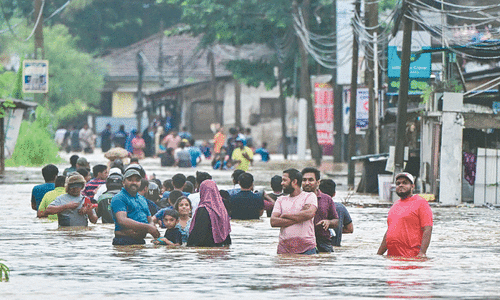IDLIB: A Covid-19 vaccine campaign kicked off in Syria’s last rebel-held enclave on Saturday, with a 45-year-old front-line nurse becoming the first to receive a UN-secured jab.
Nizar Fattouh, a nurse in Ibn Sina Hospital in Idlib city, received one of 53,800 AstraZeneca vaccines delivered to northwest Syria through Turkey on April 21.
The vaccines come amid a new surge of infections in the war-torn country. Syria supplies of oxygen are depleted and its hospitals were already overwhelmed from 10 years of conflict and deteriorating health care services.
The AstraZeneca vaccines were delivered to the rebel-controlled area through a border crossing with Turkey, the northwestern territory’s only gateway to the outside world.
Idlib health official Yasser Najib said the jabs were provided through the UN-led COVAX programme for the worlds poor and developing nations.
He said the vaccination campaign will last 21 working days, starting on Saturday in two of the enclave’s largest hospitals. On Monday, the campaign will unfold in other health centers, Najib said.
He said the small quantity will prioritise health care workers and aid personnel who are on the front line of the battle against the coronavirus. Infections among health care workers in the enclave have been high, accounting for as many as 30pc of confirmed cases at one point.
There are over 21,000 confirmed infections in the rebel-held enclave, home to 4 million people, most of them displaced from different parts of Syria by the conflict. At least 641 have died in the area from Covid-19 related complications. Conflict has subsided in the area, but outbreaks of violence are still reported.
Syria has been divided by the war so vaccinations in government-controlled areas, nearly 60pc of the country’s territory, are managed and take place separately.
The Syrian government has secured 200,000 vaccines through the UN-led programme but also has obtained doses from China, Russia and the United Arab Emirates. A limited inoculation campaign had also begun in government-controlled areas that are experiencing increased pressure on hospitals.
In the Kurdish-controlled northeast, authorities announced this week they will extend a partial lockdown amid a surge in infections. The one-week extension comes as an international aid group warned of oxygen shortages in the region.
Northeast Syria, administered by a Kurdish-led authority, doesn’t have a separate inoculation programme and is dependent on Damascus for testing for the virus and for vaccinations. The local health department reported 123 new cases and 14 deaths in the region, which is home to nearly 4 million people and borders Turkey and Iraq. The new cases raise to nearly 15,800 the total registered coronavirus cases in the region, including 571 deaths.
The World Health Organisation has said the vaccination campaign in Syria aims to inoculate 20pc of the total population residing in the country by the end of the year.
Published in Dawn, May 2nd, 2021











































Dear visitor, the comments section is undergoing an overhaul and will return soon.